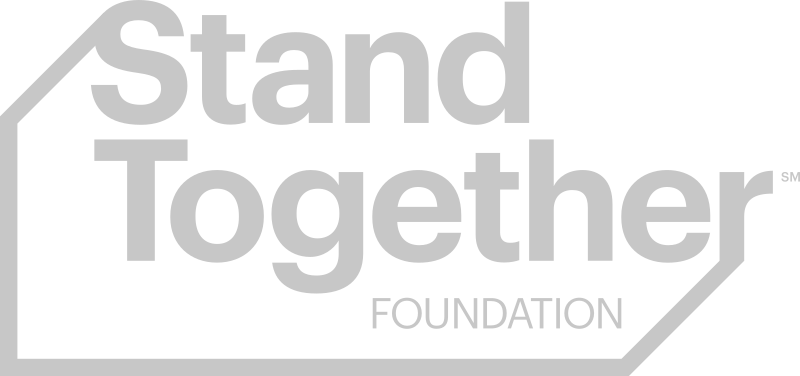Alex Diaz, a former Boston gang member, is trying to recruit Kerim to a program called Boston Uncornered. It is designed to break the cycles of poverty and violence that trap gang involved youth by providing access and support to help them continue their education.
Kerim is looking to do something different with his life, but it’s not easy to turn away.
“Sometimes, you know, it’s hard,” Diaz levels with him.
Sometimes, you might not want to do it, he says. You might not want to sit in class, let alone change your whole life — no matter how tough it has been. But one day, you wake up and realize that you’re broke, Diaz says, that you’ve got no degrees or certifications.
It’s the job of Boston Uncornered’s College Readiness Advisors (CRAs) to recruit and support former gang members.
They serve as neighborhood-based mentors. A CRA intern, Diaz is out with Uncornered former executive director Tito SantosSilva; it’s a training day. Despite the aid and the experience of people who know that life, recruitment can be a difficult process.
“It’s like any relationship. It takes time,” SantosSilva says. “Imagine someone coming in and telling you that everything you’re doing and you’ve done is wrong.”
In the shadow of a beaten up bus, the low Boston sun lacing saffron through a gray sky, Diaz tells Kerim about going to Boston private nonprofit college Benjamin Franklin Institute of Technology, learned to be an electrician. It’s not easy, Diaz tells Kerim; it’s nowhere close to putting speakers wire together, he laughs. Diaz has his degree, his new life.
“But we want to make sure it doesn’t stop there,” SantosSilva, himself formerly gang-affiliated, says. Uncornered’s CRAs know that not everyone takes the same path; where Diaz found a new life working the wires, tailoring the path to a new life to the person’s interests and passions can make it more fulfilling, a road to self-actualization.
These are people with potential, potential that can be realized with help from people who understand both them and their communities.
“If you want to start your own business, we plug you in,” SantosSilva says. “ If you want to invest? We plug you in. If you want to go to college? We plug you in.”
It’s a pitch, really, not too far afield from the kind that got Diaz and Kerim into gang life to begin with — resources, support, community, promise. Is Kerim in?
Take your time, Diaz says.
Boston Uncornered
There are pockets of Boston, a city full of top colleges, where kids just don’t have access to educational opportunities.
Many are first-generation immigrants or the children of immigrants, families trying to figure it out, SantosSilva says. They meet kids who are facing the same challenges they do, form relationships that can eventually become gangs that can eventually beget violence.
“If you were in the same situation, if we were in the same situation, we’d probably be doing a lot of the same stuff.”
Educational access, along with academic, emotional, and financial support may be the key to staunching that violence that bleeds from corners like Norton and Bowdoin, which Diaz calls the most notorious intersection in the city.
Boston Uncornered? It’s on the corner of Norton and Bowdoin.
It describes itself as the country’s only “corner to college” initiative purposefully reaching out to gang involved youth.
CRAs seek out and recruit the people at the center of the city’s gang violence — core influencers in that world. Boston Uncornered offers them a different life. These core influencers can wield a lot of power; the idea is that they will be a beacon for others in their neighborhood, helping improve things for everyone.
Reaching out to their peers is working: 70% of Uncornered’s students have matriculated to college, SantosSilva says, and 68% make it to their sophomore year of post-secondary education.
Looking at their networks and influence, the CRAs rank prospects one through five, looking to bring in gang-involved youth with the biggest potential impact — the fives — first.
Former core influencers can become CRAs, neighborhood-based mentors that provide support to recruits, informed by their own intimate knowledge of gang life. To help ease the financial barriers to education, Boston Uncornered provides core influencers with a stipend.
CRA director Francisco DePina grew up in the Bowdoin Street neighborhood. Kicked out of the Boston Public Schools system and two different job corps programs, DePina thought the street was it for him, where he was meant to be.
But the support of Uncornered helped him to change his mind, and realize he wanted to help his community.
He became a recruiter himself, working his old neighborhood.
“And because I got to go back into that same neighborhood I was chilling, drinking, smoking, selling drugs, I was able to talk to those same individuals living that same lifestyle that I was living, and talking to them about the different opportunities that we have to offer here,” DePina says.
Although there are other programs in the area that offer high school equivalency degrees, English classes, college prep, and other services, it’s Boston Uncornered’s focus on the core influencers of gang involved youth that set it apart.
“Most people don’t wanna work with these guys and give them the opportunity.”
DePina
DePina says. “And how we look at it is these guys are the ones who have the power and the network to change that neighborhood from negative to positive.”
Becoming a CRA
“So, the CRAs are the ones that go out on the streets,” Diaz says.
“They go in neighborhoods, they recruit, you know, people that are stuck in court, people that have gun cases, people that are on probation.” They do more than try and get core influencers to earn their high school equivalency degree, Diaz says; their role is to get gang involved youth to see their future in a better place.
He looks up to his fellow CRAs. Some may have been brutal back in their street days, and are older and more experienced now, but Diaz never feels like they look down on him. Drawing on their own experience, the CRAs can help motivate and keep people on track.
While locked up, Diaz had phone conversations with DePina regularly, learning about the program. After being released from state prison, with no GED and no job prospects, he had returned to the streets when three CRAs approached him.
“It was a huge moment when Boston Uncornered approached me, when they came to my house in dead middle of the winter,” Diaz says. They came in the driving snow and talked with Diaz, asked him what support he needed to get back to school, to get to school, to support his family.
Diaz is now a CRA intern. He moves through the city’s neighborhoods, telling others about his life, letting them know that there are people out there who not only want to support them, but understand where they are coming from. People like Kerim, who has started working towards his high school equivalency degree.
“My advice to other entrepreneurs is, people who can heal the community are people from the community,” SantosSilva says.
“Some of us have been incarcerated. Some of us, in gangs.”



